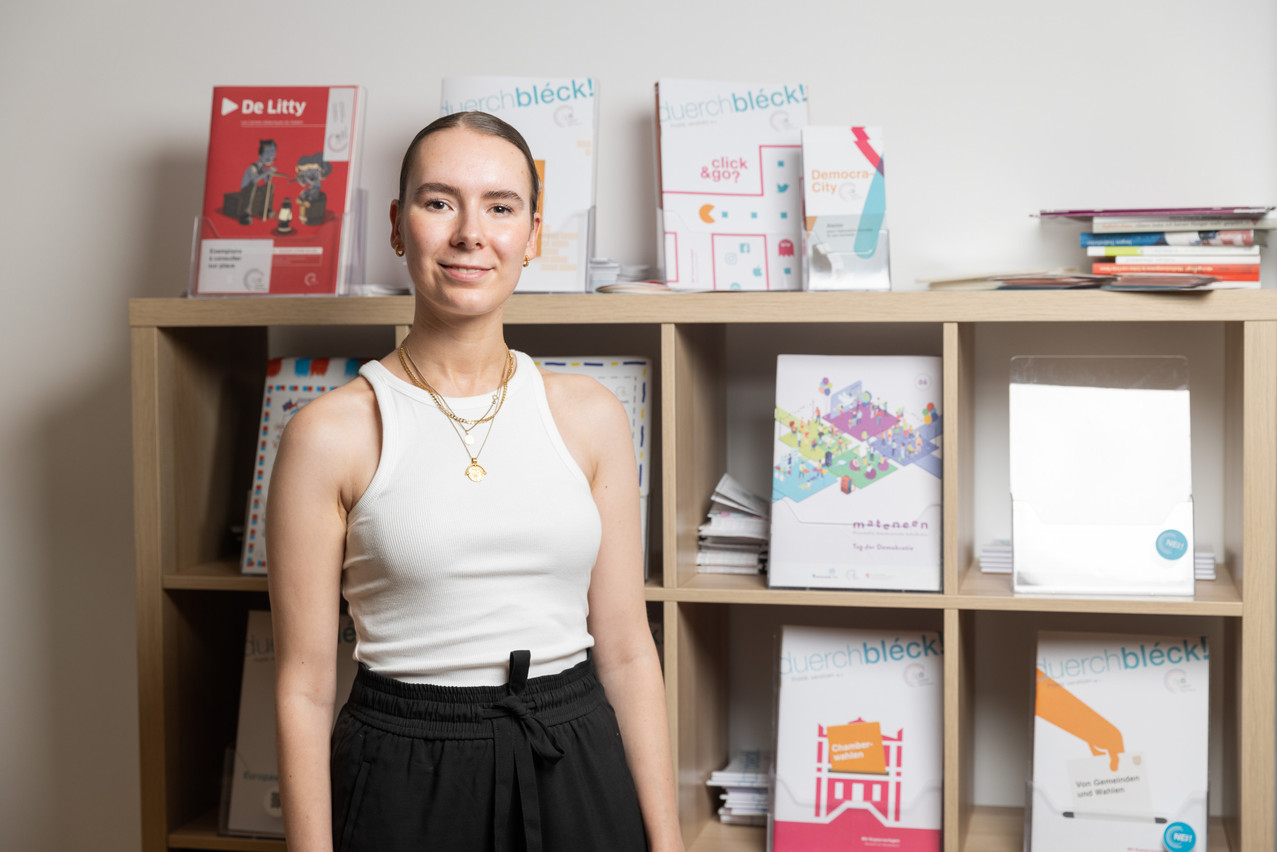The Centre for Citizenship Education (Zentrum fir politesch Bildung) helps people learn about politics in Luxembourg. Why is it so important to understand the system?
Our main goal is participation--active participation of citizens in society. The first step to be able to participate is to be informed and to understand the system, how political decisions are made in Luxembourg.
How difficult is it to interest people who cannot vote, whether that’s foreigners or teenagers who aren’t yet 18?
It’s definitely more difficult to motivate people when they don’t feel concerned because they cannot yet vote or don’t have the right to vote. For teenagers, we try to be very active in schools and youth centres to awaken their interest in politics. Voting has been made easier for foreigners in local elections now that the residence clause has been abolished. But if you live in Luxembourg, you are affected by what happens here. Elections aren’t the only way to participate. There are civil society organisations where you can get involved. Showing these options can also motivate people.
Languages are always a topic in Luxembourg. What does the country’s multilingualism mean for your work and being in contact with different communities?
We invest a lot of time and money to make our content available in different languages. Everything we offer in principle is available in German, French and English. It’s important that the information is as accessible as possible. In the context of the elections, we are trying to produce more content in other languages.
What other practical barriers do people struggle with?
We are developing a flyer that people can take into the voting booth to ensure that the ballot is filled in correctly. This is a problem, especially when you’re used to a different system from your home country.
For first-time voters, it’s also interesting to know what to do--not to cross the lines, not to sign the paper, not to cross something out. It should help everyone to prevent their vote from not being valid.
The centre itself isn’t political, but how do you work together with other institutions?
We work together in a network with civil society organisations and political institutions, such as the Chamber of Deputies or the judiciary. We enrich each other and include different perspectives. But we don’t promote anyone’s election programme or political convictions. Our aim is for people to develop their own opinion.
It’s one year to go until the next national elections. What would be your advice for people who cannot vote to prepare and seek information?
The biggest tip is to look at the parties and their programmes, even if you cannot vote, because you will know who you’re dealing with once the results are in. Election programmes tackle big problems and issues in Luxembourg. There are many suggested solutions, and as a resident, you will be affected by what’s decided in the end.
You can look at our offer. Many other different organisations provide information and work on projects to make it as accessible as possible. One part is informing yourself about the elections--how a mayor is voted, how a government is formed. But you can also think about why it’s relevant for you and why you should care.
And people who want to get Luxembourg citizenship will have to vote once they receive it, so it’s good to take a look at what’s happening in the country politically.
